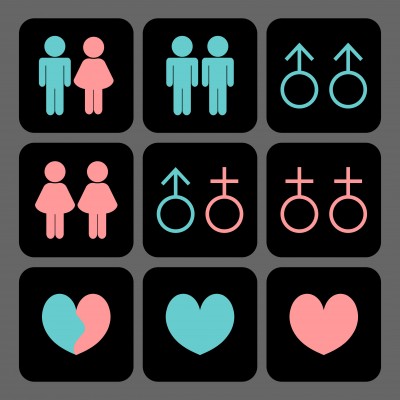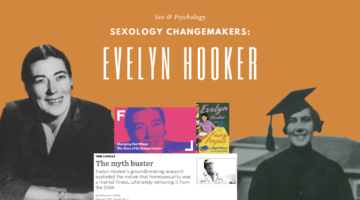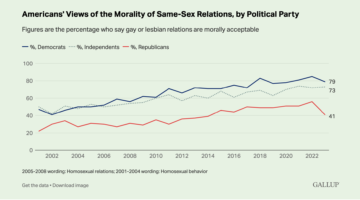Willingness To Date Bisexuals Among Gay And Straight Men And Women
April 17, 2015 by Justin Lehmiller
Bisexual persons are frequently stereotyped as being sexually confused, secretly gay, highly promiscuous, and incapable of maintaining a monogamous relationship. These negative views of bisexuals are held by many heterosexuals, as well as by many gays and lesbians. What are the implications of all of this binegativity? A recent study published in the journal Psychology of Sexual Orientation and Gender Diversity suggests that one possible outcome is that both gay and heterosexual persons may be less interested in having sexual and romantic relationships with bisexual persons.
In this study, 801 participants recruited online answered questions about their openness to being sexually and romantically involved with a bisexual individual. The sample included heterosexual, gay, and bisexual men and women. The average age of participants was 29, most (76%) were White, and 33% had completed a 4-year college degree.
Participants were given a series of hypothetical scenarios in which they answered questions about how willing they would be to (1) have sex with, (2) go on a date with, and (3) have a committed relationship with a bisexual man and (separately) a bisexual woman whom they thought was attractive. These questions were rated on a 5-point scale ranging from definitely not willing to definitely willing. Participants who were only attracted to one sex could select “not applicable” for any of the questions.
Results revealed that, on average, participants appeared to be open to the possibility of a sexual or romantic relationship with an attractive bisexual person. Specifically, the average score for each of the questions was above the midpoint of the scale for all gender and sexual orientation groups except heterosexual women.
That said, bisexual participants were the most willing to express interest in a bisexual target—both heterosexual and gay participants expressed lower willingness on all questions. In addition, whereas bisexual participants did not differ in their willingness to have a sexual vs. romantic relationship with a bisexual target, heterosexual and gay participants did. Specifically heterosexual and gay participants reported that they would be more willing to have sex with or date someone who was bisexual than they would be to have a committed relationship with a bisexual person.
It is also worth noting that the willingness ratings provided by gay and heterosexual men did not significantly differ from one another; however, the ratings provided by lesbian and heterosexual women did. Specifically, heterosexual women reported lower levels of willingness on all questions compared to lesbians.
Of course, these findings are limited in that they only assess people’s willingness to pursue sexual and romantic relationships with hypothetical bisexual targets. We know from other research that what people say they would do does not always match up with what they actually do in relationships.
In addition, these results do not conclusively demonstrate that heterosexual and gay participants’ reduced sexual and romantic interest in bisexuals stemmed from binegativity. Only interest in bisexual targets was assessed (meaning we cannot compare willingness rates for targets of other sexualities) and there was no measure of bisexual prejudice or belief in bisexual stereotypes.
That said, the fact that gay, lesbian, and heterosexual persons made a distinction between willingness to have sex vs. willingness to have a committed relationship suggests that the common stereotype about bisexuals making unsuitable relationship partners may have been behind participants’ responses.
For a look at research debunking some common stereotypes about bisexuality, check out this article.
Want to learn more about Sex and Psychology ? Click here for previous articles or follow the blog on Facebook (facebook.com/psychologyofsex), Twitter (@JustinLehmiller), or Reddit (reddit.com/r/psychologyofsex) to receive updates.
To learn more about this research, see: Feinstein, B. A., Dyar, C., Bhatia, V., Latack, J. A., & Davila, J. (2014). Willingness to engage in romantic and sexual activities with bisexual partners: Gender and sexual orientation differences. Psychology of Sexual Orientation and Gender Diversity, 1(3), 255-262.
Image Source: 123RF.com
You Might Also Like:

Dr. Justin Lehmiller
Founder & Owner of Sex and PsychologyDr. Justin Lehmiller is a social psychologist and Research Fellow at The Kinsey Institute. He runs the Sex and Psychology blog and podcast and is author of the popular book Tell Me What You Want. Dr. Lehmiller is an award-winning educator, and a prolific researcher who has published more than 50 academic works.
Read full bio >


